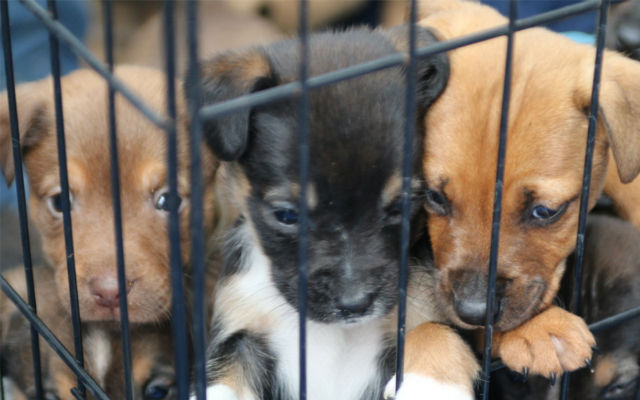
Source: Photo by Danielle Bourgeois
Japan’s problem with puppy farms, plus where to adopt a pet in Japan
- Tags:
- Dogs / Pets / Social Issues
Related Article
-

Historic Japanese Cinema Revamps Couple Discount Offer to Include LGBT Patrons and Wins Online Praise
-
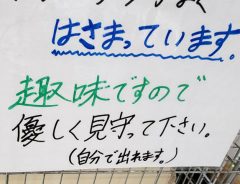
Peculiar chinchilla comes with funny warning note at pet store
-
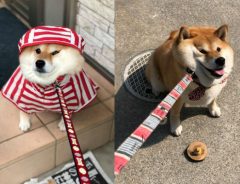
Meet Hana-Chan, The Stubbornly Cute Shiba Inu Who Will Let You Know When A Walk Starts Or Stops
-
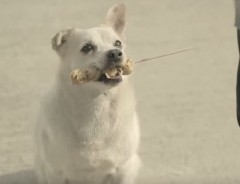
This Heartwarming Commercial Shows Us How A Dog Never Forgets An Act Of Kindness!
-
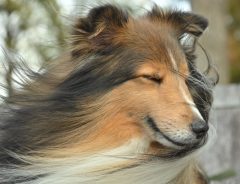
Japanese Twitter falls smitten with “too handsome” model Sheltie
-
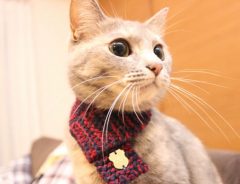
Fancy Kitty Scarves From Japan Give Cats One More Reason To Act All Smug


Puppies, kittens, hamsters, bunnies and a ton of other fluffy creatures that you don’t even know the name of. Take your pick, I’m guessing you have a favourite.
Our pets have won a place in our hearts that is forever theirs. The endless entertainment they provide us with, the way their soft fur feels when they snuggle up for an evening cuddle and the bountiful love that shines in their eyes, it’s all a constant ensemble that we crave for.
But forget all that, sometimes we humans go too far.
Our want and need for the perfect breed has led to a number of inhumane practices that ensure the breeding industry meets the demands.
Source: Bryan Price | CC by SA 2.0
Imagine Fifi, a toy poodle with a lovable disposition, beautiful soft curly fur, and the most adorable puppy dog eyes. Now imagine her again, caged up in unsanitary conditions, without enrichment, without love and without any socialisation other than the brief interactions she gets when her “breeder” throws a small amount of food and water into her cage, and the mostly aggressive relationship she has with Fido, the stud dog. For clarification, Fido is kept in the same conditions. Overbred and uncared for, they are alone, they are hurt and they are scared.
They deserve so much more.
There is no justification for the conditions that some animals have to live with, no matter how many people want to get their hands on the perfect “breed”. The number one factor behind the creation of these inhumane and distasteful practices is the increasing demand for breeds of animals that are meant to look a certain way. Often leading to cases of inbreeding which then goes on to create developmental problems in the offspring.
When animals are rescued from these places they often come with their own set of problems, both physically and mentally, making them hard to rehome, especially when hopeful adopters are not actively looking for a “broken” animal to share their home with. This can then backfire and lead to more people buying from untrustworthy sellers and pet shops who get their stock from the unsanitary breeding farms that the overlooked rescue dogs originated from.
It’s an ongoing cycle, and only we can stop it.
Actress, Fumi Nikaido has recently been appealing against the inhumane practices of breeding farms across the country.
After welcoming “Zoi”, a rescued former breeding dog, Nikaido has used her instagram to share pupdates and information about the appeal against the harsh conditions breeding dogs are subjected to.
In a post on June 29, Nikaido said “My dog was a breeding dog. She was thin and she often bared her teeth in fear. I would wonder ‘What kind of place you were in?’, ’Did you give birth to many puppies?’
After living with Zoi, my heart was opened up to the dogs that have to survive in such poor environments.
Tomorrow there will be a review on the conditions breeders must meet; the current conditions proposed are in the 4th image. I am so shocked, I cannot move.
If this proposal is accepted, then breeding dogs will continue to suffer until the next revision. There are so many cruel realities and hardships that are often overlooked. It gets you thinking, ’Are the puppies and kittens in the pet store from here?’
Know, think and take action.
I want to create a world where people coexist better with animals. Thank you.”
The proposals Nikaido refers to in the fourth image, is a numerical clarification for breeders and distributors of dogs and cats, outlining what have been deemed as “acceptable” measurements of equipment and facilities.
Calls for a revision on breeding conditions had been made, as information had recently come to light of how some breeders and pet stores have struggled with keeping their animals in acceptable conditions.
The image is only from a draft of the proposal, but as Nikaido and others have pointed out, the cage sizing seems to be too small and unfair for the animals.
Following Nikaido’s post, more people have become aware of the dire situation some animals face on a daily basis. Although one voice can feel small against the masses, when a choir is formed and sings about basic animal rights, changes can eventually be made.
Some comments on the post:
“Breeders only see puppies and kittens as money! The poor things” @_joker_san_
“There are facts here about breeding dogs that I didn’t know.” @watamama40
Tim Wilson | CC by 2.0
Although Japan has become known as one of the world’s biggest animal loving countries, it keeps it’s dark secrets hidden, especially when it comes to where animals come from.
There is a preference in the country for smaller animals, often due to strict rules in rental housing and the common misconception that smaller breeds are easier to train and less aggressive. A boom in the demand of small dog and cat breeds, i.e toy poodles, toy chihuahua, dapple dachshunds, munchkins and scottish folds, has led to an increase in mass-production puppy and kitten farms.
On top of these unfortunate places that litters are born into, these breeds which are bred for their miniature sizes and particular characteristics, such as the folded ears of the scottish fold and the dappled merle coat of dapple dachshunds, often come with their own problems, for example, the two above breeds are the result of a certain gene mutation that when reproduced with two parents with the same gene can lead to Osteochondrodysplasia (a bone and cartilage development condition) in kittens and a 25% chance of blindness and deafness in puppies. As you can probably imagine, Japan’s other popular breeds also face a multitude of genetic issues.
Look inside any pet shop in Japan and you will see stacked floor to ceiling, cages filled with a range of popular toy and miniature puppies and kittens. Cute, yes, but healthy, maybe no.
Take a look around, and one of the first things you may notice is the age of some of the youngest in the store, sometimes at only a mere 5-6 weeks old. This is too young for animals to be separated from their mother, and they often end up lacking socialisation skills and the confidence needed to evolve into a healthy adult.
These baby animals, as adorable as they are, are more often than not in a cage by themselves or with other puppies and kittens from a different breed litter. This mixture of different breeds at a young age is a big no-no when it comes to the wellbeing of the animals, as they can often spread sicknesses and diseases they are born with (i.e worms and the parvovirus) to others that they socialise with. Another problem with pet stores is the lack of information provided on breeders, with some not disclosing information on where the animals came from, and others providing details for breeders that go off the grid.
With so many problems plaguing Japan’s pet stores, it is probably best to look for a pet at a rescue home before hitting the shops. If however, you do decide to buy directly from a breeder, make sure they are legitimate, ask for documentation and licensing, and most importantly make sure you see the puppy or kitten with their mother and littermates before purchasing. This last point is important as seeing the young with their mother can show you the temperament of the parents, giving you an idea of how your pet may turn out as an adult, as well as showing you how your pet interacts with his or her littermates, which can help determine if there are any physical or mental issues in your pet that you should be aware of before you take them home.
If you are interested in finding a rescue pet to share some love with, check out the following websites:
Japan Cat Network - Not only specialising in cats, the Japan Cat Network also has a number of dogs up for adoption. This shelter has English speaking staff.
ARK - One of the largest non profit pet shelters in Japan. Ark is based in Osaka, but also has an office in Tokyo and will help with paperwork to ship out adoptees. This shelter has English speaking staff.
Pet no Ouchi - This shelter helps to rehome cats, dogs, and small animals such as fish rabbits, birds and gerbils. The website also has a section listing a number of animals that can be saved from scheduled euthanization - a solemn list to look at, but imagine the life that can be given to those pets when they are saved. The website is only available in Japanese.